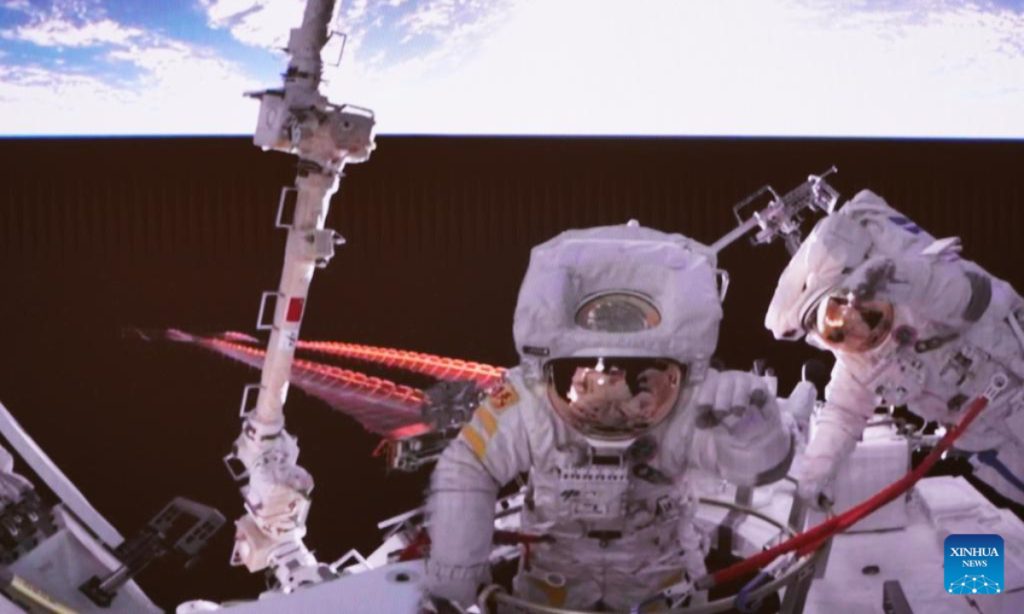Landing site ready for Shenzhou-14's return

China's Shenzhou-14 crew, who have stayed at China's space station for half a year, have completed all the assigned tasks and will return to Earth in the coming days, the Global Times learned from the Jiuquan Satellite Launch Center in Northwest China's Gansu Province on Friday.
The Shenzhou-14 spacecraft will land at night at the Dongfeng landing site in the Gobi Desert, North China's Inner Mongolia Autonomous Region, the Global Times learned. The site conducted the last full-system integrated exercise for its search and rescue mission on Thursday.
The drill on Thursday further tested the site's organizational and implementation capabilities for spacecraft search and rescue missions. Currently, all special working groups at the landing site are ready to receive the return of Shenzhou-14.
Shenzhou-14 is the last mission of the three-step development strategy of China's manned space project, as well as the final episode of the construction stage of the China Space Station.
The fact that they will return at night time involves higher requirements for on-site rescue and risk prevention, the Global Times learned, as it would be more difficult to locate and reach the ship at night.
To prepare for the successful completion of the return, the landing site worked on a situation with the maximum of hardship, complexity, coldness and darkness, and made various plans for spacecraft tracking, return capsule recovery, and on-site rescue for astronauts.
A number of materials have been prepared including lighting and winter supplies. Training for extreme situations has also been carried out to ensure they can handle any kind of emergency during the process.
Early on Wednesday morning, six taikonauts of the Shenzhou-14 and -15 missions had their historic gathering in the China Space Station, marking a first in China's aerospace history, after the Shenzhou-15 manned spacecraft was launched on Tuesday night.
The new faces of Shenzhou-15 will conduct a direct handover in orbit with their predecessors, which will take about five days, during which the Shenzhou-14 crew members will mainly prepare for their return to Earth, while the Shenzhou-15 crew will focus on setting up the space station's working status, adapting to the space environment and concluding the handover.
Sitting atop a Long March-2F Y14 carrier rocket and carrying Chen Dong, Liu Yang and Cai Xuzhe - the third crew to enter China's Tianhe space station core module - Shenzhou-14 was launched on June 5 from the Jiuquan Satellite Launch Center.
Six months later, the Shenzhou-14 members have achieved a number of firsts, including the first in-orbit docking of two 20-ton space modules, the first time taikonauts entered the Wentian and Mengtian lab modules, and the first two-hour fast autonomous docking of a cargo spaceship.
According to Ji Qiming, spokesperson for the China Manned Space Agency, they have completed a variety of tasks. The crew coordinated with the ground to finish building the basic structure of the T-shaped space station. They have also undergone nine combo configurations, five rendezvous and docking maneuvers, two separations, and two translocation missions.
The Shenzhou-14 crew have also managed a large number of platform tests, as well as equipment maintenance and other tasks onboard the space station. They completed the unlocking and installation of experiment cabinets in two lab modules, and carried out a number of scientific and technical experiments as well as one "Tiangong classroom" space lecture.